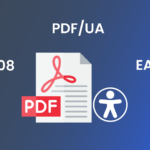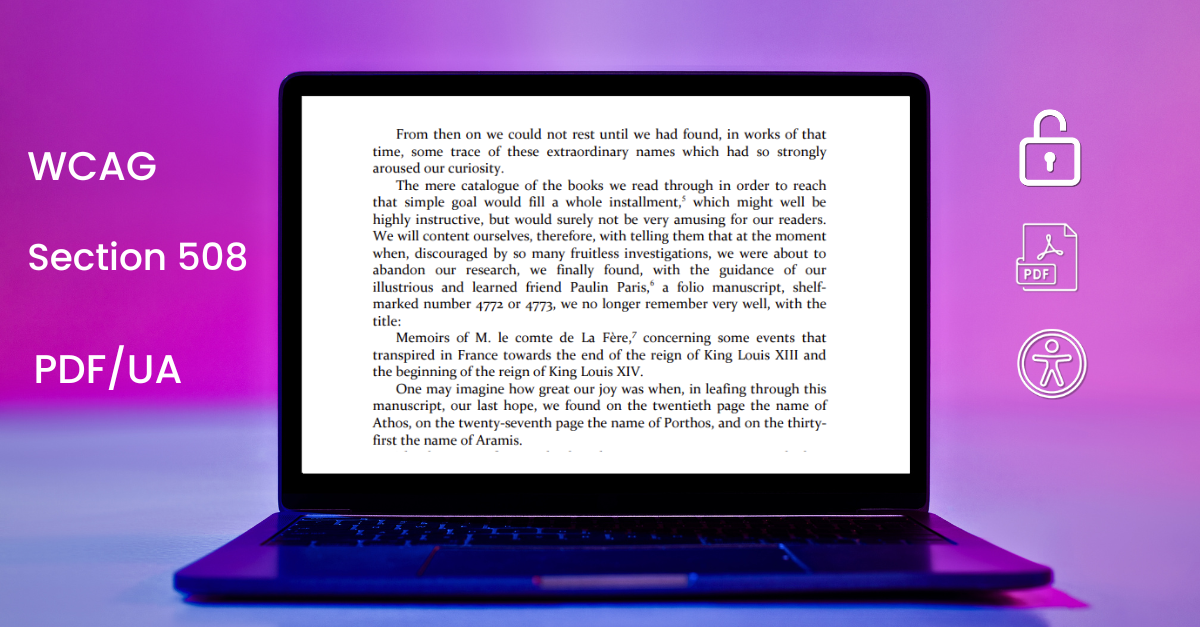In recent years, the surge in accessibility lawsuits has highlighted the critical need for businesses to comply with the Americans with Disabilities Act (ADA). According to the 2023 Year-End Report by UsableNet, over 4,600 ADA digital accessibility lawsuits were filed in 2023 alone, marking a significant increase from previous years. This trend underscores the importance of ensuring digital content is accessible to individuals with disabilities. Let’s explore the legal implications of non-compliance, recent trends in ADA accessibility lawsuits, and crucial lessons businesses can learn to avoid costly litigation.
Understanding ADA Compliance and Its Importance
The ADA mandates that digital content, including websites, mobile apps, and videos, be accessible to individuals with disabilities. Compliance is primarily guided by the Web Content Accessibility Guidelines (WCAG). Failing to meet these standards can result in lawsuits, financial penalties, and reputational damage.
Recent Trends in ADA Accessibility Lawsuits
Recent data reveals significant trends in ADA accessibility lawsuits:
- Court Filings: 67% of ADA lawsuits were filed in federal courts, while 33% were filed in state courts. New York has emerged as a leading state for these filings, highlighting the growing importance of state-level regulations in digital accessibility.
- Repeat Offenders: Over 700 lawsuits targeted businesses with prior ADA-related lawsuits, indicating a persistent risk for companies that fail to address accessibility issues comprehensively.
- Sector Impact: The eCommerce sector, accounting for 82% of all lawsuits, is particularly vulnerable due to its complex and rapidly evolving websites. Additionally, small businesses, especially those with annual revenues under $25 million, now face heightened scrutiny, making up a significant portion of the lawsuits.
Note: These statistics are based on the 2023 Year-End Report by UsableNet. For the most up-to-date information, please refer to the latest accessibility reports or legal databases.
Key Legal Implications of Non-Compliance
Non-compliance with ADA standards can lead to several severe legal and reputational risks:
Financial Penalties
The Department of Justice (DOJ) can impose substantial civil penalties for ADA violations. For a first violation, fines can exceed $75,000, while subsequent violations may result in penalties of over $150,000. Additionally, businesses may incur settlement costs, legal fees, and expenses for retrofitting digital properties to achieve compliance.
Reputational Damage
Failing to ensure accessibility can tarnish a company’s reputation, leading to loss of customer trust and negative publicity. This damage can have long-lasting effects on a business’s brand and bottom line.
Lessons Learned: How to Mitigate Legal Risks
To avoid the pitfalls of ADA-related lawsuits, businesses should adopt these proactive measures:
- Integrate Accessibility from the Start: Implement accessibility features during the initial development of digital content. Adhering to WCAG 2.2 guidelines ensures your digital properties are accessible to all users.
- Conduct Regular Audits and Testing: Perform frequent accessibility audits of your digital properties. Use both automated tools and manual testing by users with disabilities to identify and resolve issues promptly.
- Engage with Accessibility Experts: Consult with specialists who can provide tailored advice, conduct in-depth audits, and offer guidance on implementing effective accessibility strategies.
Recent ADA Lawsuits: Case Studies and Their Outcomes
Examining recent ADA lawsuits provides valuable insights into the consequences of non-compliance:
Whirlpool Corporation (KitchenAid Website) (2023)
In 2023, Whirlpool Corporation faced a class-action lawsuit alleging that its KitchenAid website was inaccessible to visually impaired and blind visitors. The lawsuit highlighted the need for proper labeling for screen readers and navigable content, emphasizing the importance of ensuring all aspects of a company’s digital presence comply with ADA standards.
Key Takeaway: Implement comprehensive accessibility features, including proper labeling and navigation, to accommodate users with visual impairments.
Sweetgreen (2024)
In early 2024, Sweetgreen, a popular restaurant chain, was sued for its website’s inaccessibility to blind and visually impaired consumers. The lawsuit argued that critical site components, such as menu navigation and ordering functions, were not usable with screen reader technology.
Key Takeaway: Ensure all interactive elements, especially those crucial for core business functions like ordering, are fully accessible to users relying on assistive technologies.
Why Documenta11y is Your Ideal Partner for Document Remediation and Accessibility
As digital accessibility becomes increasingly critical, partnering with a trusted expert like Documenta11y is essential. We offer comprehensive solutions to help businesses meet ADA compliance requirements, reducing the risk of legal action and ensuring all digital content is accessible.
Get a Free Consultation from One of Our Accessibility Experts Today!
Don’t wait for a lawsuit to prioritize accessibility. Take proactive steps to ensure your digital presence is inclusive and compliant. Contact Documenta11y to learn how our experts can help you achieve and maintain ADA compliance, ensuring your digital content is accessible to all users.
Disclaimer: The information provided in this article is based on external sources. While we strive for accuracy, we cannot guarantee the completeness or reliability of the data. All sources referenced are for informational purposes only. For specific legal guidance, please consult with a qualified attorney.

 5 Key Things to Look for When Choosing a PDF Accessibility Partner
5 Key Things to Look for When Choosing a PDF Accessibility Partner How Semantic Structure and Regions Improve Digital Accessibility
How Semantic Structure and Regions Improve Digital Accessibility Less ARIA, More Accessibility: Documenta11y's Guide to Cleaner Web Content
Less ARIA, More Accessibility: Documenta11y's Guide to Cleaner Web Content

